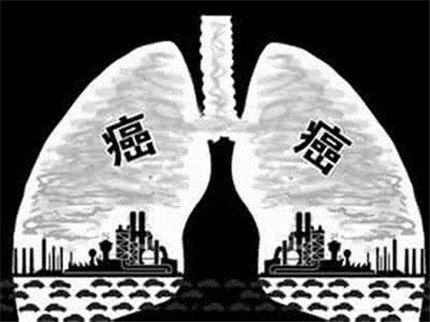SCI论文(www.lunwensci.com):
摘要:随着疾病诊疗水平以及公众健康意识的不断提高,恶性肿瘤的早期诊断率明显升高。但是肺癌仍然是全球主要的健康问题和最常见的恶性肿瘤相关死因。靶向治疗因其高疗效、低毒性成为治疗肺癌的重要策略之一。其中针对表皮生长因子受体酪氨酸激酶抑制剂(EGFR-TKI)的研究和应用最为广泛、深入。尽管众多肺癌患者从EGFR-TKI治疗中获益,但随之而来的耐药问题成为科研和医务工作者需要攻克的一大难题。本文主要综述EGFR-TKI耐药后的治疗策略新进展,以期为临床治疗提供帮助。
关键词:非小细胞肺癌;表皮生长因子受体;获得性耐药;靶向治疗
本文引用格式:李美清,张翠英.晚期非小细胞肺癌EGFR-TKI耐药后的治疗策略[J].世界最新医学信息文摘,2019,19(66):83-84.
Therapeutic Strategies after EGFR-TKI Resistance in Non-small Cell Lung Cancer
LI Mei-qing 1,ZHANG Cui-ying 2*
(1.Inner Mongolia Medical University,Hohhot Inner Mongolia;2.Department of Oncology,People's Hospital of Inner Mongolia Autonomous Region,Hohhot Inner Mongolia)
ABSTRACT:With the continuous improvement of the level of diagnosis and treatment and public health awareness,the early diagnosis rate of malignant tumors is significantly increased.But lung cancer remains the world's major health problem and the most common cause of malignancy.Targeted therapy has become one of the important strategies for the treatment of lung cancer because of its high efficacy and low toxicity.Among them,the research and application of epidermal growth factor receptor tyrosine kinase inhibitor(EGFR-TKI)is the most extensive and in-depth.Although many lung cancer patients benefit from EGFR-TKI treatment,the consequent drug resistance problem has become a major problem for research and medical workers.This article reviews the recent advances in treatment strategies for EGFR-TKI resistance in order to provide assistance in clinical treatment.
KEY WORDS:Non small cell lung carcinoma;Epidermal growth factor receptor;Acquired resistance;Molecular targeted therapy
0引言
表皮生长因子受体酪氨酸激酶抑制剂(EGFR-TKI)改变了非小细胞肺癌(NSCLC)患者治疗的模式,并且成为驱动基因阳性的NSCLC的一线治疗。虽然与常规化疗相比,厄洛替尼,吉非替尼及奥希替尼等EGFR-TKIs在无进展生存期和总生存期方面取得了卓越的疗效,但大多数人不可避免地对它们产生获得性耐药,这对NSCLC的治疗提出了另一个挑战。目前国内外的研究已经探索了许多策略来克服对EGFR-TKI的获得性耐药。本文拟就EGFR-TKIs耐药后的应对策略进行综述。
1EGFR-TKI获得性耐药的机制主要可分为四类
1.1EGFR二次突变
包括T790M突变、C797S突变以其他罕见突变,其中最为常见的是T790M突变[1]。
1.2旁路激活
包括MET扩增、HER2扩增、胰岛素样生长因子(IGF)上调和GAS6/AXL激活等[2]。
1.3组织学转化
主要指非小细胞肺癌向上皮间质转化(EMT)或小细胞肺(SCLC)癌转化[3-4]。
1.4下游靶点激活
主要指KRAS、BRAF和PIK3CA突变,以及抑癌基因PTEN和NF-1的缺失等[5]。
2耐药后的治疗策略
2.1针对EGFR二次突变的治疗策略。
2.1.1第三、四代EGFR抑制剂
如上所述,继发性T790M突变解释了第一代和第二代EGFR-TKI治疗失败的主要原因。第三代EGFR-TKI应运而生,2015年11月美国FDA将突变选择性不可逆抑制剂奥希替尼(osimertinib)用于T790M突变阳性的NSCLC患者,其疗效显著,客观缓解率高达50%[6]。然而,在治疗约9~13个月后奥希替尼也未能逃脱耐药的宿命。研究者在细胞中构建EGFR-C797S突变表明C797S突变是奥希替尼耐药常见机制。C797S突变可分为顺式突变和反式突变,若C797S和T790M呈反式突变,那么第一代和第三代EGFR-TKI的组合可能是患者的耐药后的治疗策略。如果顺式突变,则细胞对所有EGFR-TKI都具有耐药性[7]。那么新一代TKI的研发迫在眉睫,变构抑制剂EAI001和EAI045是一种新型EGFR抑制剂,可与远离ATP结合位点的变构位点结合。有望为设计EGFR变构抑制剂提供依据[8]。
2.1.2继续原EGFR-TKI治疗
一些肿瘤学专家认为,当患者处于疾病进展(根据RECIST定义)而又无症状阶段时,由于部分肿瘤细胞对EGFR-TKI仍有敏感性,可以继续EGFR-TKI治疗[9]一项回顾性研究报告,通过继续EGFR-TKI,患者的中位PFS为10.9个月,33%的患者PFS可以达到12个月,显示出超越局部进展的持续性疾病控制[10]。因此,继续EGFR-TKI治疗是耐药后的一种可选方式。NCCN指南建议疾病进展后可继续使用吉非替尼,厄洛替尼或阿法替尼[11]。
2.2联合治疗
2.2.1EGFR-TKI联合化疗
为了进一步改善EGFR-TKI耐药患者的生存获益,许多临床试验已经探索了EGFR-TKI和化疗的组合。一项回顾性研究比较厄洛替尼联合化疗与单独化疗对厄洛替尼耐药的NSCLC患者,厄洛替尼组的ORR超过化疗组的两倍(41%vs 18%),但两组的中位PFS相当(4.4 VS 4.2个月)[12]。另一项III期临床试验显示,在吉非替尼耐药的T790M阴性NSCLC患者中,吉非替尼联合培美曲塞化疗的中位PPFS(RECIST标准PD后无进展生存期)明显长于单独化疗(6.6 VS 3.5个月,)[13]。因此,验证EFGR-TKI和化疗联合治疗的疗效,需要更多的临床试验数据。
2.2.2EGFR-TKI联合其他靶向药物
西妥昔单抗是靶向EGFR的人源化单克隆抗体。西妥昔单抗联合阿法替尼能够通过抑制EGFR磷酸化使厄洛替尼耐药的肿瘤再次缩小[14]。而厄洛替尼和西妥昔单抗的组合在I/II期临床试验中没有给厄洛替尼耐药的NSCLC患者带来更长的生存获益,但却有更高的不良反应发生率[15]。所以西妥昔单抗和其他EGFR TKI的联合策略可能不是TKI耐药NSCLC患者的合理选择。
2.3针对旁路激活的治疗策略
Tivantinib等MET受体抑制剂,在临床研究中,其与EGFR-TKI合用时,表现出较高的抗癌活性[16]。Her2抑制剂(阿法替尼)、BCL⁃2抑制剂(Navitoclax)、AXL抑制剂(cabo⁃zantinib,是包括AXL的多种酪氨酸激酶的抑制剂)、可能是逆转TKIs耐药的新策略[17]。其他联合抑制剂疗法包括PI3K抑制剂(buparlisib),热休克蛋白90抑制剂(AUY922)或JAK抑制剂(ruxolitinib)正在开发中[18]。期望未来更多临床试验验证联合治疗的有效性。
2.4针对组织学转化的治疗策略
临床研究显示,对奥希替尼耐药患者如果发生SCLC转化,使用铂类双联化疗仍有效[19]。使得耐药患者逆转EMT的治疗策略包括阻断M2毒蕈碱受体信号传导、靶向EMT的组蛋白去乙酰化酶抑制剂恩替诺特、MEK抑制剂司美替尼以及免疫治疗等[20]。
2.5针对下游靶点激活的治疗策略
尽管在靶向治疗耐药的患者中发现了KRAS突变,目前但很少有针对具有KRAS突变的NSCLC患者的试验,导致没有针对性的治疗方法。KRAS抑制剂Antroquinonol是一种从牛樟芝中分离的小型抗癌分子,具有很强的抗癌活性,但其在临床试验中的有效性尚在评估中[21]。BRAFV600E抑制剂encorafenib(LGX818)与奥希替尼联合使用可以抑制细胞的集落形成,是耐药后BRAF突变的可选治疗方式[22]。针对PI3K/mTOR的双重抑制剂NVP-BEZ235通过下调PI3K/AKT/mTOR磷酸化有效抑制吉非替尼耐药的NSCLC细胞的生长[23]。
2.6免疫治疗
由于EGFR突变与免疫检查点PD-1(程序性死亡1)/PD-L1(程序性死亡配体1)的激活之间密切相关,免疫治疗为EGFR-TKI耐药患者的治疗提供了另一个新方向。在I期临床试验,EGFR-TKI耐药患者接受厄洛替尼和nivolumab联合治疗,能得到持续应答,中位PFS为5.1个月,OS为18.7个月。且毒性可耐受[24]。此外,一项回顾性研究报道,在TKI耐药患者中,与T790M阳性患者相比,nivolumab治疗给T790M阴性患者带来更多的生存获益,可能是由于T790M阴性患者的PD-L1表达较高[25]。
3结语
靶向治疗改写了晚期NSCLC传统治疗的篇章,为驱动基因阳性的患者带来极大的生存获益。然而随之而来的耐药问题,成为我们需要攻克的难题。目前,克服TKI耐药的新型药物正在不断深入研究,联合治疗方案也在积极探索中。同时,寻找更多潜在靶点来指导临床治疗也显得尤为重要。因此,期待更多的研究为临床治疗提供依据,为晚期NSCLC患者提供最佳的个体化治疗方案。
参考文献
[1]Morgillo F,Della Corte CM,Fasano M,et al.Mechanisms of resistance to EGFR-targeted drugs:lung cancer[J].ESMO Open,2016,1:e000060.
[2]Aarif Ahsan.Mechanisms of Resistance to EGFR Tyrosine Kinase Inhibitors and Therapeutic Approaches:An Update[J].Lung Cancer and Personalized Medicine,2016,380(2):494-5040.
[3]Poh ME,Liam CK,Rajadurai P,et al.Epithelial-to-mesenchymal transition(EMT)causing acquired resistance to afatinib in a patient with epidermal growth factor receptor(EGFR)-mutant lung adenocarcinoma[J].J Thorac Dis,2018,10(7):E560-E563.
[4]Santoni-Rugiu Eric,Grauslund Morten,Melchior Linea C,et al.Heterogeneous resistance mechanisms in an EGFR exon 19-mutated non-small cell lung cancer patient treated with erlotinib:persistent FGFR3-mutation,localized transformation to EGFR-mutated SCLC,and acquired T790M EGFR-mutation.Lung Cancerhttp://dx.doi.org/10.1016/j.lungcan.2017.08.024.
[5]Tatsuya Nagano、Motoko Tachihara and Yoshihiro Nishimura.Mechanism of Resistance to Epidermal Growth Factor Receptor-Tyrosine Kinase Inhibitors and a Potential Treatment Strategy[J].Cells,2018,7:212.
[6]JANNEPA,YANGJC,KIMDW,et al.AZD9291inEGFR inhibitor⁃resistant non⁃small⁃cell lung cancer[J].N Engl J Med,2015,372(18):1689⁃1699.
[7]Z.-H.Tang,J.-J.Lu,Osimertinib resistance in non-small cell lung cancer:Mechanisms and therapeutic strategies[J].Cancer Letters,2018.
[8]Shanhe Wan,Ruohong Yan,Ying Jiang,et al.Insight into Binding Mechanisms of EGFR Allosteric Inhibitors using Molecular Dynamics Simulations and Free Energy Calculations,Journal of Biomolecular Structure and Dynamics[J].Journal of Biomolecular Structure and Dynamics,2018,30.
[9]Riely GJ,Kris MG,Zhao B,et al.Prospective assessment of discontinuation and reinitiation of erlotinib or gefitinib in patients with acquired resistance to erlotinib or gefitinib followed by the addition of everolimus[J].Clin Cancer Res,2007,13(17):5150-5.
[10]Conforti F,Catania C,Toffal orio F,et al.EGFR tyrosine kinase inhibitors beyond focal progression obtain a prolonged disease control in patients with advanced adenocarcinoma of the lung[J].Lung Cancer,2013,81(3):440-444.
[11]Ettinger DS,Wood DE,Aisner DL,et al.Non-small cell lung cancer,version 5.2017,NCCN clinical practice guidelines in oncology[J].J Natl Compr Canc Netw,2017,15(4):504-35.
[12]Goldberg SB,Oxnard GR,Digumarthy S,et al.Chemotherapy with Erlotinib or chemotherapy alone in advanced non-small cell lung cancer with acquired resistance to EGFR tyrosine kinase inhibitors[J].Oncologist,2013,18(11):1214-20.
[13]Ding T,Zhou F,Chen X,et al.Continuation of gefitinib plus chemotherapy prolongs progression-free survival in advanced non-small cell lung cancer patients who get acquired resistance to gefitinib without T790M mutations[J].J Thorac Dis,2017,9(9):2923-34.
[14]王阿曼,等.非小细胞肺癌EGFR-TKI耐药的分子机制及防治策略[J].中华肿瘤防治杂志,2017,24(01):71-78.
[15]Janjigian YY,Azzoli CG,Krug LM,et al.Phase I/II trial of cetuximab and erlotinib in patients with lung adenocarcinoma and acquired resistance to erlotinib[J].Clin Cancer Res,2011,17(8):2521-7.
[16]Scagliotti G,von Pawel J,Novello S,et al.Phase III multinational,randomized,double-blind,placebo-controlled study of tivantinib(ARQ 197)plus erlotinib versus erlotinib alone in previously treated patients with locally advanced or metastatic nonsquamous non-small-cell lung cancer[J].J Clin Oncol,2015,33:2667-74.
[17]蔡静静,周永春.第三代EGFR⁃TKIs在非小细胞肺癌中的耐药机制及治疗策略新进展[J].实用医学杂志,2019,35(04):512-515.
[18]Zhang K,Yuan Q.Current mechanism of acquired resistance to epidermal growth factor receptor-tyrosine kinase inhibitors and updated therapy strategies in human nonsmall cell lung cancer[J].J Can Res Ther
,2016,12:C131-7.
[19]HAMJS,KIMS,KIM H K,et al.Two cases of small cell lung cancer transformation from EGFR mutant adenocarcinoma during AZD9291 treatment[J].J Thorac Oncol,2016,11(1):e1⁃e4.
[20]Poh ME,Liam CK,Rajadurai P,et al.Epithelial-to-mesenchymal transition(EMT)causing acquired resistance to afatinib in a patient with epidermal growth factor receptor(EGFR)-mutant lung adenocarcinoma[J].J Thorac Dis,2018,10(7):E560-E563.
[21]Xiaojuan Ai,Xialing Guo,et al.Targeted therapies for advanced non-small cell lung cancer[J].Oncotarget,2018,(9)101:37589-37607.
[22]Ho,C.C.;Liao,W.Y.;Lin,C.A.;et al.Acquired BRAF V600E mutation as resistant mechanism after treatment with osimertinib[J].J.Thorac.Oncol,2017,12:567-572.
[23]Sun,Z.;Li,Q.;Zhang,S.;et al.NVP-BEZ235 overcomes gefitinib-acquired resistance by down-regulating PI3K/AKT/mTOR phosphorylation[J].Onco Targets Ther,2015,8:269-277.
[24]Gettinger S,Hellmann MD,Chow L,et al.Nivolumab plus erlotinib in patients with EGFR-mutant advanced NSCLC[J].J Thorac Oncol,2018,13(9):1363-1472.
[25]J.Gao,H.-R.Li,C.Jin1,et al.Strategies to overcome acquired resistance to EGFR TKI in the treatment of non-small cell lung cancer[J].Clinical and Translational Oncology,2019,12.
关注SCI论文创作发表,寻求SCI论文修改润色、SCI论文代发表等服务支撑,请锁定SCI论文网! 文章出自SCI论文网转载请注明出处:https://www.lunwensci.com/yixuelunwen/19277.html


